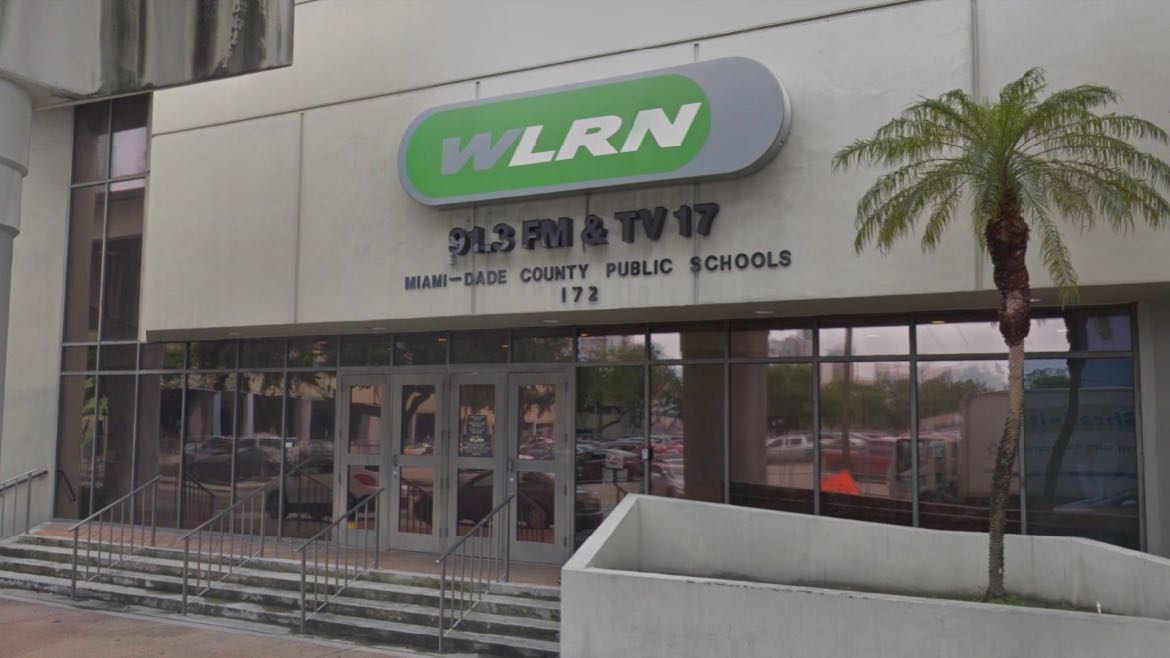Licensee of WSRE ends PBS affiliation, moves to decertify foundation

The college licensee of WSRE in Pensacola, Fla., is taking steps to cut jobs at the station, end its affiliation with PBS and decertify its supporting foundation.
The board of trustees of Pensacola State College voted 3-1 Sept. 16 to end WSRE’s affiliation with PBS after June 30, 2026. PSC President Ed Meadows made the recommendation, according to a recording of the meeting obtained by Current through an open records request.
“My recommendation is that we end our PBS affiliation at the end of this funding year and that we optimize all available grant funding to support WSRE during this transition,” Meadows told trustees.
The decision follows a reduction of state funding to Florida’s public broadcasters and the rescission of federal funding by Congress.
WSRE is the second public TV station publicly known to be dropping PBS, following WEIU-TV in Charleston, Ill. As a result of the trustees’ vote, WSRE will also lose access to the PBS Kids 24/7 channel. It has been a PBS station since 1972.
Meadows said he was looking into programming WSRE with ECHO, a 24/7 channel distributed by Blue Ridge PBS in Roanoke, Va., that features documentaries, art and lifestyle content.
The board also voted to decertify the WSRE Foundation, an independent nonprofit formed in 1990 that receives and solicits gifts on behalf of WSRE. Meadows, who has not yet signed the decertification, said he had asked the foundation board to consider moving its assets to the college in order to help with future operations of WSRE.
WSRE Foundation Vice Chair Amy Day told Current that the foundation is exploring its legal rights. The foundation’s board voted unanimously Sept. 18 to seek legal counsel from Brad C. Deutsch of Foster Garvey, a law firm based in Washington, D.C., according to the Pensacola News Journal.
Meadows also spoke at the board meeting about the potential for layoffs at WSRE. Meadows said “technical support” staff would remain at WSRE but that Pensacola State College plans to move some station jobs into PSC departments, while other positions may be cut.
WSRE management referred questions to a PSC spokesperson. In a statement to Current, Meadows said, “Until the Pensacola State College Board of Trustees votes on the future direction of WSRE, it is premature to speculate on how this decision may impact personnel.”
A PBS alternative
Stations in Florida are reeling from both state and federal funding losses. In July, Florida Gov. Ron DeSantis vetoed nearly $6 million in funding to the state’s public broadcasters. WSRE and other public TV stations in the state lost about $370,400 annually due to the veto.
Also in July, Congress approved a rescission of federal funding to public broadcasters through CPB for fiscal year 2026 and fiscal year 2027.
In FY24, WSRE received a Community Service Grant of $1.1 million, according to CPB’s website. That accounted for nearly 20% of the organization’s total revenue of almost $5.8 million that year, according to a FY24 audited financial statement.
WSRE’s FY24 audited financial statement said PSC gave WSRE $1.5 million in direct support and valued its “use of facilities and other indirect administrative support” at $1.35 million. WSRE Foundation employees are employees of PSC, according to an affiliation agreement between the foundation and the college’s board of trustees. PSC provided $604,000 in salaries and expenses to the foundation in FY25, according to the foundation’s audit.
Switching to Blue Ridge PBS’ ECHO programming would cost PSC $80,000 annually, compared to WSRE’s PBS dues for FY26 of $660,000. That would allow WSRE to continue producing its Pensacola State Today and Conversations with Jeff Weeks public affairs programs, Meadows said at the meeting. Board members did not vote on adopting ECHO.
Blue Ridge PBS CEO William Anderson told Current that he wants ECHO to be an alternative for stations that can’t afford PBS. “It is extremely affordable and extremely reliable,” he said.
PSC trustee Zackary Smith, a senior legal fellow at the Heritage Foundation, said at the Sept. 16 meeting that he wanted more information about ECHO. “It looks like a fairly new entity,” Smith said. “I had a chance to visit their website. It looked fairly bare bones right now, and so I would just want to make sure that it is a sustainable path forward.”
Trustee Andrew Hobbs, chief deputy at the Escambia County Sheriff’s Office, expressed disappointment about WSRE ending its PBS affiliation. Hobbs is also the PSC board of trustee representative on the WSRE Foundation board. “Growing up poor in Pensacola, the only thing I had was PBS,” he said. “I had the Reading Rainbow. I had Sesame Street.”
Hobbs said he understands that “some of the material that goes on PBS in some areas is not what I consider acceptable” but that he watches Antiques Roadshow daily and that his nine-year-old son also watches PBS programming.
Hobbs said that WSRE could still generate additional financial support from viewers. Meadows said he felt those efforts could still fall short of filling the funding gap.
During the meeting, Karen Pope, interim director of business and administration for WSRE, said four employees who support the WSRE Foundation could be laid off. Pope added that she is a contract worker and that her position will eventually be cut. An accounting position could also be eliminated, she said.
Pope said that if layoffs take place, four production staffers would either continue working with WSRE or move into other positions at the college. GM Jill Hubbs would remain on staff. Two engineering positions and two traffic workers would be cut, leaving the station with about seven workers, Pope said.
Options for future management
At its meeting Sept. 18, WSRE Foundation board members discussed the vote to decertify the organization and expressed their disappointment in Meadows and PSC’s board of trustees.
“As a board collectively, our official statement is we don’t want to lose PBS and we don’t want to separate from the college,” said Amy Day, vice chair of the WSRE Foundation. She added that the foundation wants to work amicably with the college, but so far the school’s leadership seems to “want to dangle a carrot by saying ‘Well, I haven’t signed the papers yet. If you can give me something reasonable and attainable, a solution for this, then I would entertain it.’”
WSRE Foundation Board Chair Brent Videau expressed doubts about ECHO during the meeting, according to Pensacola ABC affiliate WEAR. “As you heard, it’s only been in existence for four years,” Videau said. “It provides programming, but is it going to replace what we’ve all come and loved from PBS? We tend to not think so, but we’re willing to look at it.”
Day told Current that the foundation board considered ideas for future management of WSRE during the meeting. Suggestions included establishing a sister station relationship with Alabama Public Radio’s WHIL in Mobile; collaborating on funding with a children’s health foundation in Jacksonville, Fla.; attempting to transfer WSRE’s license to the WSRE Foundation; and making WSRE a community licensee.
Meadows, who attended the foundation meeting, told attendees working with Alabama Public Radio was not feasible, according to Day. Meadows also said the college was not seriously considering transferring WSRE’s license. A spokesperson for the University of Alabama, which holds the license for Alabama Public Radio, did not respond to Current’s requests for comment.
The foundation voted to hold weekly public meetings about its future, Day told Current. The next meeting is Thursday.
“The community work that this foundation does to bring people together is important,” Day said. “To just act as if it can be dismissed … It’s unbelievably disrespectful, and it’s so sad. But rather than getting stuck in the craziness of the world, I’d really love for the people in my area who this really affects to slow down and say, ‘How can I help?’”





